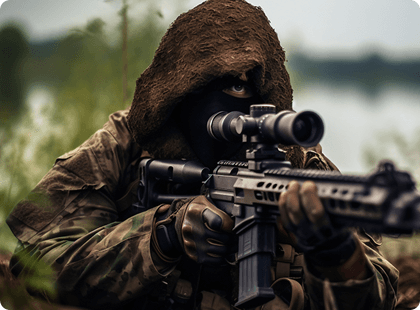- 10–30% of large game animals (such as wild boar or deer) are not recovered immediately after being shot, depending on the terrain, shot placement, and experience of the hunter.
- Dogs can increase recovery rates by over 50%, especially when used within the first few hours after the shot. Scent trails degrade rapidly — timing is critical.
- Bavarian Mountain Hounds and similar breeds are bred specifically for blood tracking. Their scent tracking abilities are often effective up to 24–36 hours after the shot.
- In some European countries, hunting laws require hunters to make every reasonable effort to recover wounded animals — and using a trained dog is often recommended or mandatory.
- Unrecovered wounded game leads to unnecessary animal suffering, can attract predators, and negatively affects public perception of hunting.
- Organized recovery reduces waste, improves safety in the forest, and encourages responsible hunting practices.
- Tracking Dog Effectiveness: The use of trained tracking dogs, such as the Bavarian Mountain Hound, can significantly improve recovery rates of wounded game. These dogs are adept at following scent trails, increasing the likelihood of locating and retrieving wounded animals.
- Ethical Hunting Practices: Implementing ethical hunting practices, including the use of tracking dogs, aligns with wildlife conservation efforts and reduces unnecessary animal suffering.
Legal Requirements: In some European countries, hunters are legally required to make every reasonable effort to recover wounded game, which may include the use of trained tracking dogs.

